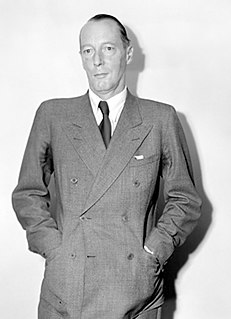A Quote by Mary Shelley
Nothing contributes so much to tranquilize the mind as a steady purpose - a point on which the soul may fix its intellectual eye.
Related Quotes
The man at the top of the intellectual pyramid contributes the most to all those below him, but gets nothing except his material payment, receiving no intellectual bonus from others to add to the value of his time. The man at the bottom who, left to himself, would starve in his hopeless ineptitude, contributes nothing to those above him, but receives the bonus of all of their brains. Such is the nature of the 'competition' between the strong and the weak of the intellect. Such is the pattern of 'exploitation' for which you have damned the strong.
Imagination is the organ through which the soul within us recognizes a soul without us; the spiritual eye by which the mind perceives and converses with the spiritualities of nature under her material forms; which tends to exalt even the senses into soul by discerning a soul in the objects of sense.
The mind's eye can nowhere find anything more dazzling or more dark than in man; it can fix itself upon nothing which is more awful, more complex, more mysterious, or more infinite. There is one spectacle grander than the sea, that is the sky; there is one spectacle grander than the sky, that is the interior of the soul.
In heaven there is laid up a pattern which he who chooses may behold, and beholding, set his own house in order. The time has now arrived at which they must raise the eye of the soul to the Universal Light which lightens all things. With the eye ever directed toward things fixed and immutable which neither injure nor are injured - these they cannot help imitating. But I quite admit the difficulty of believing that in every man there is an eye of the soul which by the right direction is re-illumined, and is more precious far than ten thousand bodily eyes.
We live less than the time it takes to blink an eye, if we measure our lives against eternity. So it may be asked what value is there to a human life. There is so much pain in the world. What does it mean to have to suffer so much, if our lives are nothing more than the blink of an eye?...I learned a long time ago, Reuven, that a blink of an eye in itself is nothing; but the eye that blinks, that is something.
The eyelids confess, and reject, and refuse to reject. They have expressed all things ever since man was man. And they express so much by seeming to hide or to reveal that which indeed expresses nothing. For there is no message from the eye. It has direction, it moves, in the service of the sense of sight; it receives the messages of the world. But expression is outward, and the eye has it not. There are no windows of the soul, there are only curtains.
Natural selection, the blind, unconscious, automatic process which Darwin discovered, and which we now know is the explanation forthe existence and apparently purposeful form of all life, has no purpose in mind. It has no mind and no mind's eye. It does not plan for the future. It has no vision, no foresight, no sight at all. If it can be said to play the role of the watchmaker in nature, it is the blind watchmaker.
The scientific method," Thomas Henry Huxley once wrote, "is nothing but the normal working of the human mind." That is to say, when the mind is working; that is to say further, when it is engaged in correcting its mistakes. Taking this point of view, we may conclude that science is not physics, biology, or chemistry — is not even a ”subject " — but a moral imperative drawn from a larger narrative whose purpose is to give perspective, balance, and humility to learning.
Without a doubt the sense of beauty does not lie determined in the concreteness of an individual beautiful thing or person. Rather its purpose is much more the enchantment of the soul, for there is nothing physical that is not made with the intent of affecting the soul, and there is no soul that does not intend to dazzle everything physical with its sensations.





































